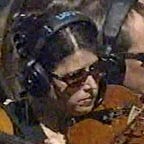From the Editors: Fall 2018
Each year on November 1 — or, alternatively, on the month’s first Sunday — many Christian communities mark All Saints Day, a centuries-old festival that commemorates all who have died in Christ, the great cloud of witnesses that Philip Pfatteicher characterizes in his New Book of Festivals and Commemorations (Minneapolis: Fortress Press, 2008) as “a vast communion that spreads beyond all bounds of race and language and human condition, beyond even time and space, across the barrier of death” (533). Or, as the twentieth-century hymn sings, saints can be met: “in school, or in lanes, or at sea, in church, or in trains, or in shops, or at tea” (The Hymnal 1982, no. 293, st. 3). In addition to All Saints Day, the liturgical year is filled with festivals and commemorations that orient us toward the issues of political engagement, justice, and public ministry explored by contributors in this issue of the SCSM newsletter. Throughout the fall season, Episcopal, Roman Catholic, and Lutheran calendars have marked the lives of, among many others: Hildegard of Bingen (September 17), the twelfth-century abbess who confronted emperors and popes; Dag Hammarskjöld (September 18), the Secretary General of the United Nations whose sense of vocation was rooted in a deep spirituality; Francis of Assisi (October 4), who rejoiced in the full majesty of God’s vast creation; and the evangelist Luke (October 18), a physician whose gospel teaches of Jesus’s power to heal and restore bodies — both individual and collective — that are wounded by division and injustice.
The coalescence of liminal spaces on All Saints Day — a meeting of the living and dead, past and present, known and unknown, individual and communal — also presents opportunity for Christian scholars to ponder central themes of the preceding pages: of singing as dual earthly and heavenly citizens, of sounding forth God’s kingdom come and the kingdom yet to be, of considering the public implications of one’s individual (and oftentimes private) scholarship. For Pfatteicher, within “each faithful person the Christian proclamation has concrete realization, for this is the Christian gospel: to call people to believe that they, in company with the multitude of others, might become holy” (533). May the witness of saints past, saints among us, and saints yet to come continue to guide our work and play, scholarship and service, and all that we do as members of the body of Christ in the world.
Creator of life’s turning, horizon of our quest, praise be for our unlearning, unknowing and unrest. May wonder lead to waking, may sight our minds renew, that ev’ry course of seeking turn deeper into you.
So form in us your calling that, wakened, we become your Spirit’s open dwelling, a just and questing home. Creator, to our learning the mind of Christ impart, that ev’ry step and turning expand the thinking heart.
— Susan Palo Cherwien, in Come, Beloved of the Maker: Hymns of Susan Palo Cherwien, Vol. 2 (Minneapolis: Augsburg Fortress, 2010).
Chad Fothergill, Philadelphia, PA
Chelle Stearns, Seattle, WA
